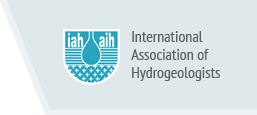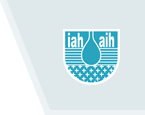IAH-MAR Co-Chair Elections 2019
ELECTION IS TO BE HELD AT IAH-MAR PLENARY SESSION 22 MAY 2019 at ISMAR10, MADRID
Three nominations have been received and there are three vacancies;
Enrique Fernández Escalante (seconded by Luis Martínez Cortina)
Catalin Stefan (seconded by Russell Martin)
Yan Zheng (seconded by Weiping Wang)
Information on nominees for IAH-MAR Co-chairs
Supplementary information on nominees. Enrique Catalin Yan
The information below describes the nomination process which is now completed, and other leadership roles that volunteers may play within the Commission in IAH-MAR Working Group or IAH-MAR Networks.
——————————————————————-
WANTED : Nominations for IAH-MAR Co-chairs
We seek nominations for the honorary positions of Co-chair of IAH Commission on Managing Aquifer Recharge, due to Weiping Wang and Peter Dillon not seeking renewal at the elections to be held at the IAH-MAR Plenary at ISMAR10 in May 2019. Enrique Fernandez, the third incumbent, who is also the convenor of ISMAR10, will stand for election.
What does a Co-chair do?
Co-chairs work together to help coordinate activities of the Commission and to help build the leadership team. The leadership team is composed of co-chairs, working group leaders and network coordinators.
Examples of co-chair tasks:
- Helping interested people to develop and refine activities to advance MAR by forming working groups to complete these tasks and promote outputs
- Calling for and selecting applications for the next ISMAR before the preceding one (in a committee with IAH, UNESCO and ASCE)
- Helping as needed with communications leading up to ISMARs and other things that conf organiser may request
- Ensuring that there will be refereed publications emerging from ISMARs and help select editors and journals as required
- If possible, see that ISMAR poster papers are accessible beyond the conference, in a way that recognises their un-reviewed status
- Seeking to maximise international benefits of the Commission, taking particular account of developing countries and aiming to publish as much as possible in open access refereed publications, or via the IAH-MAR web site. (Leave no one behind.)
- Maintaining the web site
- Sending around occasional emails to the list with relevant news
- Convening plenary sessions of IAH-MAR at ISMARs and IAH Congresses at as many other relevant conferences as possible to widen connections and advance activities
- Writing letters of support to those who request it for MAR-related research proposals (offering IAH-MAR communication channels to disseminate outcomes to a very relevant international audience)
- Contacting networks of the commission and keeping them engaged
- Liaising with IAH, UNESCO, GRAC, AHS, IWA and other organisations as needed to maximise the achievement of objectives of the commission (see our welcome page for current objectives) and broaden exposure to Commission activities
- Assist the ISMAR organising committees by liaising with UNESCO to seek funding to help with travel costs for early career scientists from developing countries, and to establish selection criteria, solicit proposals, review them and make recommendations to UNESCO for awards. To also arrange where an ISMAR has made a profit for some of this to be banked with IAH to expand support of such delegates to future congresses.
- Preparing annual reports on IAH-MAR activities for IAH Executive and for posting on IAH-MAR web site for public information early each calendar year, and preparing a request to the IAH Executive as advised, in order to extend the life of the Commission before its charter expires (currently each 6 years).
- Reviewing objectives, methods and communications of the Commission from time to time and certainly at the time of bidding for an extension of the Commission’s charter.
- Think about new ways the Commission can increase its benefits and implement discussions and actions that will see these bear fruit.
Co-chair requisites
Co-chairs need to be members of IAH
The notion of 3 co-chairs was to have some language, cultural and geographic diversity in the team. We thought that three could do more than two, widen the interpersonal connections and help lighten the load. They can allocate tasks between them and for this it is desirable to have at least one person from each of industry and research as co-chairs.
We could add that it may be preferable to have at least one early career person and one senior person who has experience in supporting volunteers, and to be gender-representative.
It would be desirable to not have all co-chairs leave at once, so there is some corporate memory in the leadership team.
It is desirable for those standing for election to be present at ISMAR10, where the election will take place.
It is desirable to have a vibrant leadership team, and appointing one or two new co-chairs at each election, (each 3 years at an IAH-MAR plenary at ISMARs) could be a one way of doing this.
Salary: Is entirely in the form of satisfaction in helping a broad group work together to reach aspirational goals. There is no remuneration and no discount on registration fees.
Elections:
*** We could request that those willing to stand for election to nominate at least a month before ISMAR10 (by 20 April 2019) and to provide a passport type photo, name and up to 10 lines of biodata, and up to 10 lines indicating particular interests you wish to pursue as a co-chair. All nominations need to include the contact details of another IAH member that seconds the nomination. Nominations should be provided to Peter Dillon, retiring co-chair, at pdillon500@gmail.com Nominations would be consolidated by Peter onto a sheet to be circulated before the election.
The election of co-chairs will take place at each ISMAR at the Plenary of IAH-MAR, and if possible an Executive member of IAH will be the returning officer, and declare the nominations for co-chair positions and perform the election, likely by show of hands, or by whatever means they think is appropriate.
Bearing in mind the need for a spread in interest, experience, research/industry orientation, geography and networks, it would be wise to elect one person at a time, rather than vote for three independent people concurrently, so that voters can take account of the composition of the elected team in making their decision. However this is at the discretion of the returning officer.
Working group leaders are self-nominated to lead tasks that have a finite life, and when completed are dissolved. Hence we do not hold elections for working group leaders. A working group leader can nominate a willing successor if they need to step down. IAH-MAR would then record the new working group leader on the working group’s page.
Network leaders are leaders of national or local groups focussed on MAR. They can nominate a willing successor if they want to step down. IAH-MAR would then record the new network leader on the network’s page.


